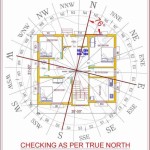Understanding Underground House Planning Permission: Essential Aspects
Planning and constructing an underground house requires careful consideration and adherence to specific regulations. Understanding the essential aspects of underground house planning permission is crucial to ensure a successful and compliant project.
An underground house is an innovative and sustainable dwelling built partially or entirely beneath the ground level. While it offers unique advantages, it also poses challenges in terms of planning, engineering, and construction. Therefore, thorough planning and obtaining the necessary planning permission are essential before embarking on an underground house project.
1. Legal Framework
The legal framework for underground house planning permission varies depending on the jurisdiction. In many countries, specific regulations govern the construction and use of underground dwellings. It's important to research local building codes, zoning ordinances, and environmental regulations to determine the feasibility and requirements for underground house construction in your area.
2. Site Selection
Site selection is a critical aspect of underground house planning. Considerations include the slope of the land, soil conditions, drainage, and access to utilities. Soil stability and water table levels need to be carefully evaluated to ensure the structural integrity and dryness of the underground house. Geotechnical surveys and environmental impact assessments may be necessary to determine the suitability of the site.
3. Architectural Design
The architectural design of an underground house requires specialized expertise and creativity. Architects must consider natural light, ventilation, and structural support when designing underground spaces. Lightwells, skylights, and other features can be incorporated to provide adequate natural light and ventilation. The structural design should withstand the weight of the earth and prevent water seepage.
4. Engineering Considerations
Underground house construction involves complex engineering considerations. Structural engineers must determine the appropriate foundation system, support structures, and waterproofing measures to ensure the stability and longevity of the house. Waterproofing is particularly crucial to prevent moisture penetration and structural damage.
5. Planning Application
The planning application for an underground house should include detailed plans, elevations, sections, and supporting documentation. It's advisable to engage an experienced architect or planning consultant who understands the specific requirements for underground house planning permission in your area.
6. Environmental Impact Assessment
In many jurisdictions, an Environmental Impact Assessment (EIA) may be required for underground house construction. This assessment evaluates the potential environmental impacts of the project and proposes mitigation measures to minimize any negative effects.
7. Construction Management
Once planning permission is granted, it's essential to follow the approved plans and specifications during construction. Qualified contractors with experience in underground construction should be hired to ensure adherence to building codes and safety regulations.
8. Post-Construction Considerations
After construction is complete, ongoing maintenance and monitoring are important for underground houses. Regular inspections should be conducted to check for waterproofing integrity, structural stability, and any signs of water seepage or other issues.
Conclusion
Planning and constructing an underground house requires careful consideration, adherence to regulations, and the involvement of qualified professionals. By understanding the essential aspects of underground house planning permission, you can navigate the process successfully and create a unique and sustainable dwelling beneath the earth.

How To Get Around Planning Permission Create An Invisible House By Building Most Of It Underground

How To Get Around Planning Permission Create An Invisible House By Building Most Of It Underground
Could I Legally Create An Underground Bunker 100 Feet Below My House Quora

Do I Need Planning Permission For A Basement Extension Lux Construction
Is It Legal To Build An Underground House On My Property Quora

Former West Yorkshire Pub Car Park Could Be Transformed Into Underground House And You Live There
Is It Legal To Build An Underground House On My Property Quora

Man Gets Planning Permission To Build Underground Tunnel Beneath House Mirror
Man Who Dug Secret Underground Tunnel Under Home Explains Why He Didn T Get Planning Permission
Is It Legal To Build An Underground Bunker Quora








